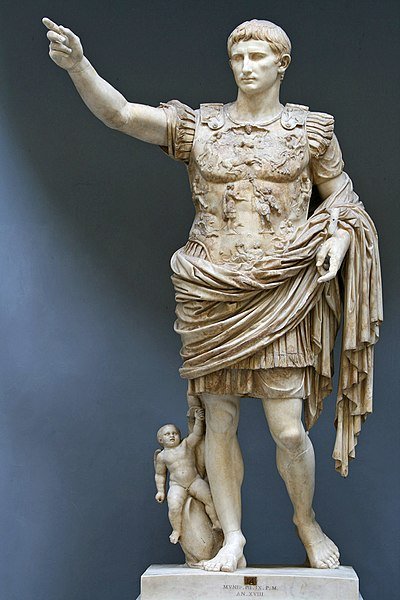Augustus Caesar – Biography, Accomplishments & Facts
Also known as Octavian or Caesar Augustus, Emperor Augustus (63 BCE – 14 CE) was the Roman ruler who turned around the fortunes of a declining republic into the Roman Empire, one of the longest-lasting empires in world history.
Undoubtedly, Augustus was one of the greatest emperors of Rome, having taken full control of the vast empire by the third decade of his reign. Starting from 17 BCE, he was most known as Imperator Caesar. His greatest accomplishment came when he founded the Roman Empire which grew to be one of the largest and most prosperous empires in history, spanning for a millennium and half. Furthermore, Augustus’ long stay on the throne and the sheer amount of power that he wielded allowed him to overhaul the religious and political structure of Rome.
The article below delves right into the circumstances surrounding Augustus’ birth story, family tree, his rise to power, accomplishments, and legacy.
Birth Story and Origin

Emperor Augustus’ statue: Augustus of Prima Porta, 1st century; location – Vatican Museums, Rome, Italy
The birth place of Augustus was on the Palatine Hill, a place close to the Roman Forum, in the city of Rome.
He was born on the Palatine Hill in the city of Rome on 23 September 63 BCE. Augustus Caesar’s family was an old, distinguished and wealthy family of an equestrian branch, a property-based class below the senatorial class.
His full name was Gaius Octavius Thurinus. His third name (cognomen), Thurinus, stemmed from the honor his father received from quelling a slave rebellion at Thurii a couple years after his birth.
His father, Gaius Octavius, hailed from a town called Velletri which is about 25 miles from Rome. It was in that town were Augustus was raised as a child.
His paternal great-grandfather Gaius Octavius distinguished himself bravely as a military tribune in Sicily during the Second Punic War. Similarly, Octavius’ father Gaius Octavius distinguished himself in the Roman Republic, once serving as the governor of Macedonia.
On his mother’s side, Augustus was distantly related to Julius Caesar, a prominent Roman general, dictator and consul. His mother Atia was the daughter of Julia the Younger, Julius Caesar’s sister. What this meant was Augustus was the great-nephew of Julius Caesar.
Relationship between Augustus Caesar and Julius Caesar
Towards the latter part of Julius Caesar’s reign, Gaius Octavius (later Caesar Augustus) was adopted by the heirless Julius to be his son and heir to the throne. Augustus was no random individual as he was related to Julius Caesar – he was Julius’ great-nephew through his mother Atia, the daughter of Julia the Younger, Julius’ sister. After the assassination of Julius Caesar in 44 BCE, Augustus took the reins of power, as per the will of Julius Caesar.
Augustus’ political and military prowess was just one of the reasons why he was able to amass immense power, maintaining a strong grip on Rome. This enabled him to reign for a very long time, surpassing his great-uncle’s reign.

Emperor Augustus was the adopted son and great-nephew of Julius Caesar (Gaius Julius Caesar) | Image: Bust of Julius Caesar, one of the only surviving sculpture of Caesar made during his lifetime
Early political career
Around the age of four, Octavius’ father Gaius Octavius died. His mother Atia remarried a man called Lucius Marcius Philippus, a former governor of Syria. For some time in his childhood, he was raised by his paternal grandmother, Julia the Younger. Sadly, Julia died in 52 BCE, meaning Octavius went back into the care of his mother and his stepfather.
Owing to his strong admiration of his great-grand uncle, Octavius took to politics at a very young age. In 47 BC, he was elected a member of the highest-ranking priests, the College of Pontiffs. A year later, in 48 BCE, Octavius worked as the organizer of a Greek sporting festival held to commemorate the Temple of Venus Genetrix (which was built by Julius Caesar).



























